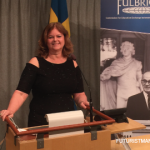Some of these projects were already operating, but now, as part of AutoCure, they are part of the wider network with access to more expertise, patients, and resources.
International Cohort Approach
Tom Huizinga, MD, PhD, chair of the department of rheumatology at Leiden University in the Netherlands, is principle investigator of a project using existing population cohorts that have now been joined together to study predictors of clinical outcome in patients with arthritis. The project has participants from 16 partners and pulls together three key European cohorts: the Norfolk Arthritis Register (NOAR), the Leiden Early Arthritis Cohort (EAC), and the Swedish Epidemiologic Investigation of Rheumatoid Arthritis (EIRA).
Whereas the cohorts had about 2,000 people each, combined they represent more than 6,000. The cohorts are being used to investigate how genetic and environmental factors affect the chronicity RA in both adult and pediatric populations. Researchers will investigate the patterns of structural damage that occur with chronicity over time in both adults and children, taking into account severity of disease and type of treatment.
This “new pan-European cohort allows us to find even small associations with significant statistical power. This is relevant because it leads to a better understanding of RA,” says Dr. Huizinga. There will be a centralized reading method for X-rays to standardize interpretations, and datasets will be pooled so there will be a common database.
The AutoCure network allows for easier information sharing. “People exchange data earlier, as well as materials, as if they are members of the same club,” says Dr. Huizinga.
Another project is using two large, existing Swedish cohorts to study the predictors of rheumatic disease in healthy populations. Lead by researchers at Umea University in Sweden, with contributions being made by six other partners, the study will use the Northern Sweden Health and Disease Study (NSHDS) and the Maternity Cohort of Northern Sweden (MCNS) cohorts.
The NSHDS cohort includes 122,800 biological specimens from 79,940 people. The MCNS includes 102,800 samples from 78,700 pregnant women who had been screened for rubella since 1976.
The databases are especially useful for long-term studies because each person in the Sweden is identified by a unique national identification number. These numbers are used in a centralized disease register which is part of a national socialized healthcare system, and makes it easier to do long-term tracking of health changes.
In the study, people who develop early RA will be identified through the national disease register. Their identification number will be matched to the two cohorts to identify blood samples that had been donated prior to disease onset. From this, various genetic and antibody studies can be undertaken to look for disease markers. Also, the populations who develop RA will be surveyed about environmental influences that may be linked to their disease.
